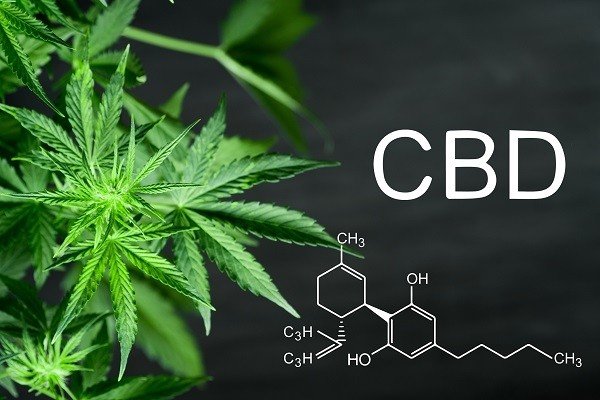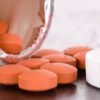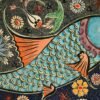Experts estimate that one out of every hundred people will have an unprovoked seizure in their lifetime. Furthermore, epilepsy — a CBD condition that causes seizures — is the fourth most common neurological disorder. It’s believed one out of every 26 people will develop epilepsy in their lives.
Yet, despite the prevalence of seizures and epilepsy, there’s no cure for the condition. Many treatment options are available, including seizure medications, diet therapies, vagus nerve therapy, brain stimulators, and taking capsules of kava.
However, 30 to 40 percent of people have drug-resistant epilepsy. This means that medications are unable to control or reduce their seizures. Additionally, many patients report bothersome side effects from seizure medications, which complicate the treatment process even further. check this content about Leaf Nation
Not all hope is lost, though. Cannabidiol (CBD), the non-psychoactive component in cannabis, has shown immense potential for treating seizures and epilepsy in adult and child patients. CBD comes in a wide range of forms, including tinctures, gummies, capsules and even topical products such as CBD moisturiser.
What is CBD? How Do You Take CBD?

Source: Pixabay
CBD is one of the main cannabinoids found in cannabis and hemp plants. According to a Phytocannabinoids Journal study, CBD is also one of the most studied cannabinoids today.
Cannabinoids are compounds in cannabis plants with various therapeutic properties. But unlike the infamous cannabinoid THC, CBD won’t get you “high.” CBD is non-psychoactive, which allows you to enjoy the medicinal effects of cannabinoids without being in an altered state of mind.
Hemp-derived CBD is legal throughout the United States and widely available in various forms. You can purchase hemp-derived CBD in-person or online without a medical marijuana card.
Vaporizing CBD cartridges is one of the main methods of consumption. You can also take CBD orally in the form of tinctures, gummies, or Green Roads CBD.
Benefits of CBD For Seizures

CBD is Highly Effective in the Treatment and Management of Seizures
Across several non-randomized and randomized clinical trials on treating epilepsy with CBD over the decades, a Drugs Journal review reports that most participants had a significant reduction in seizure activity.
Some studies in the review show that CBD reduced seizures by at least 50 percent. Study designs vary from trial to trial, with some participants taking CBD along with their other seizure medications. Even as an adjunct therapy, the results show great promise for reducing seizures with CBD.
CBD was well-tolerated in most of these studies, with minor adverse effects reported from participants. These adverse effects included:
- Drowsiness
- Decreased appetite
- Rash
- Diarrhea
- Abdominal discomfort
However, CBD’s effectiveness in reducing seizures should come as no surprise. CBD has long since been recognized as an anticonvulsant in ancient Arabic and Indian medicine. CBD’s anticonvulsant properties were also reported in ancient Chinese pharmacopeias.
In recent clinical trials, the efficacy of CBD has prompted the United States FDA to approve of a highly-concentrated form of CBD as a prescription epilepsy medication called Epidiolex.
CBD is Safe for Children and Pets with Epilepsy

Source: Pixabay
CBD’s lack of psychoactive properties — and its rare, mild adverse effects — make it a safe and effective treatment option for children and pets who have seizures.
In a study of 74 children with drug-resistant epilepsy, 89 percent reported a reduction in seizure frequency. 18 percent of these children had a 75 to 100 percent reduction in seizures.
CBD was given to these child patients after they had failed at least seven epilepsy medications. Nearly half of them had failed dietary therapy, as well.
As for pets, a Journal of American Veterinary Medical Association study found a significant reduction in seizures in dogs after taking CBD.
That being said, you should always consult your child’s pediatrician or pet’s veterinarian before making any changes to their treatment regimen.
CBD is Non-Addictive and Lacks Major Adverse Side Effects
CBD doesn’t have any addictive properties, which means you can’t become physically dependent on it. There’s no withdrawal from stopping CBD, though you should always contact your doctor before stopping and starting CBD for your seizures.
As mentioned above, the adverse effects of CBD reported among patients are often mild, with the most common side effect being drowsiness, reduced appetite, and diarrhea.
CBD Promotes Quality Sleep and May Reduce Nocturnal Seizures
Seizures can cause sleep disturbance, which could lead to sleep deprivation. Considering that sleep deprivation is a well-known seizure trigger, the cycle repeats itself: seizures disrupt sleep, and sleep deprivation aggravates seizures.
Furthermore, about one in five seizures occur during sleep. There’s also nocturnal epilepsy, which is diagnosed when seizures primarily occur during sleep.
Studies have shown that CBD can increase the duration and quality of sleep. Additionally, some have reported that cannabis effectively reduces their nocturnal seizures.
CBD Has Additional Therapeutic Properties
In addition to its anticonvulsant properties, CBD has anti-inflammatory, neuroprotective, and pain-alleviating, anxiety-reducing effects.
Considering that epilepsy often co-occurs with chronic pain, headaches, migraines, and anxiety, CBD’s additional therapeutic properties could be beneficial for symptoms related to epilepsy.
Conclusion

Source: Pixabay
CBD is a safe and effective treatment option for adults, children, and pets who have seizures. Throughout history and a number of clinical trials, CBD has repeatedly demonstrated its anticonvulsant properties. In multiple studies, CBD reduced seizure frequency by at least 50 percent.
If you or a loved one have epilepsy, it’s worth consulting your doctor about trying CBD to reduce your seizures.
References
- “Who Gets Epilepsy?” via The Epilepsy Foundation
- “Estimating risk for developing epilepsy: a population-based study in Rochester, Minnesota” via the Neurology Journal
- “When Medicines Don’t Work” via The Epilepsy Foundation
- “The Impact of Epilepsy from the patient’s perspective II: views about therapy and healthcare” via the Epilepsy Research Journal
- “Molecular Targets of the Phytocannabinoids: A Complex Picture” via the Phytocannabinoids Journal
- “Hemp Production and the 2018 Farm Bill” via the U.S. Food & Drug Administration
- “Pharmacological and Therapeutic Properties of Cannabidiol for Epilepsy” via the Drugs Journal
- “Cannabis and epilepsy: An ancient treatment returns to the fore” via the Epilepsy & Behavior Journal
- “Historical perspective on the medical use of cannabis for epilepsy: Ancient times to the 1980s” via the Epilepsy & Behavior Journal
- “Epidiolex — Home Page” via Epidiolex
- “CBD-enriched medical cannabis for intractable pediatric epilepsy” via Seizure: European Journal of Epilepsy
- “Randomized blinded controlled clinical trial to assess the effect of oral cannabidiol administration in addition to conventional antiepileptic treatment on seizure frequency in dogs with intractable idiopathic epilepsy” via the American Veterinary Medical Association
- “CBD: Is it addictive?” via Medical News Today
- “Sleep Disruption & Epilepsy” via The Epilepsy Foundation
- “Cannabidiol in Anxiety and Sleep: A Large Case Series” via The Permanente Journal
- “Jessica uses cannabis to help treat her Nocturnal Epilepsy” via Weed World Magazine
- “The pharmacokinetics and the pharmacodynamics of cannabinoids” via the British Journal of Clinical Pharmacology
- “Chapter 10 – Epilepsy, headache, and chronic pain” via the Academic Press
- “Anxiety” via The Epilepsy Foundation
Rafferances
https://trendytarzen.com/can-cbd-gummies-make-you-sleep-calmly/
https://trendytarzen.com/why-cbd-oil-for-dogs-is-the-recommended-solution-for-their-health/
https://trendytarzen.com/how-to-strengthen-your-immune-system-with-cbd-supplements/








Leave a comment